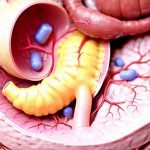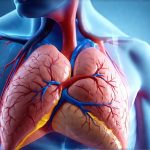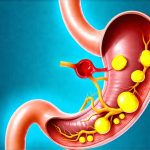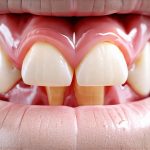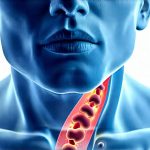Gastroesophageal reflux disease (GERD) is a surprisingly common condition affecting millions worldwide, often manifesting in ways people don’t immediately associate with digestive issues. While heartburn is the hallmark symptom many readily identify, GERD can present subtly, leading to frustrating and sometimes alarming experiences like persistent gurgling sounds in the throat, particularly at night. This article delves into the connection between GERD and these nocturnal noises, exploring potential causes, related symptoms, diagnostic approaches, and strategies for finding relief – all with the understanding that seeking professional medical advice is paramount for accurate diagnosis and personalized treatment plans. It’s important to remember that self-diagnosis can be misleading, and a healthcare provider is best equipped to determine the underlying cause of your specific symptoms.
The experience of gurgling sounds in the throat at night can range from mildly unsettling to profoundly disruptive, often interfering with sleep and causing considerable anxiety. These sounds are not simply random occurrences; they’re frequently a signal that something is happening within the digestive system or upper airway. Understanding why these noises occur requires looking beyond just heartburn and examining the complex interplay between esophageal function, stomach acid production, and even breathing patterns during sleep. Often, individuals experiencing this symptom aren’t aware of any traditional GERD symptoms like indigestion or a burning sensation in their chest, making it harder to connect the dots without proper investigation.
Understanding the Connection Between GERD and Throat Gurgling
The link between GERD and gurgling sounds stems from the movement of fluids – primarily stomach acid and gases – upwards into the esophagus and even as far as the throat. When stomach contents reflux, they can irritate sensitive tissues in these areas. This irritation isn’t always felt as a burning sensation; instead, it can trigger muscle spasms or changes in mucus production, both of which contribute to the gurgling noises we hear. The sounds are often more noticeable at night because several factors converge: gravity is less helpful when lying down, stomach emptying slows, and the pressure within the abdomen increases, all making reflux more likely.
The specific nature of the gurgling can also offer clues. It might sound like bubbling, squelching, or even a wet rattling – each potentially indicative of different aspects of the reflux process. For example, a bubbly sound could suggest gas being forced up the esophagus, while a wetter sound might indicate liquid acid reaching the throat. Furthermore, individuals with laryngopharyngeal reflux (LPR), often considered a silent form of GERD, are particularly prone to these sounds. LPR differs from typical GERD in that heartburn isn’t always present; instead, symptoms focus more on the throat and larynx.
It’s crucial to differentiate between gurgling caused by GERD/LPR and other potential sources. Conditions like postnasal drip, allergies, or even simply swallowing air can also produce similar sounds. This is why a thorough evaluation by a medical professional is essential for accurate diagnosis and appropriate management. The presence of additional symptoms – discussed later – will further help pinpoint the cause. Understanding the role of bile can also provide context to digestive discomforts.
Identifying Related Symptoms
Recognizing accompanying symptoms can significantly aid in identifying GERD as the source of throat gurgling. While heartburn isn’t always present, other indicators often are:
- Chronic cough: Acid reflux can irritate the airways, triggering a persistent cough, especially at night.
- Hoarseness: Refluxed acid can inflame the vocal cords, leading to a change in voice quality.
- Difficulty swallowing (dysphagia): Esophageal irritation or narrowing from chronic inflammation can make swallowing uncomfortable.
- A feeling of a lump in the throat (globus sensation): This is often related to muscle tension and esophageal spasm caused by reflux.
- Asthma exacerbation: Acid reflux can worsen asthma symptoms in some individuals.
- Frequent clearing of the throat: A reflex response to irritation from acid or mucus.
These symptoms may not all occur at once, but their presence alongside gurgling sounds strengthens the suspicion of GERD or LPR. It’s important to track these symptoms and share them with your doctor during evaluation. Don’t dismiss seemingly minor symptoms – they contribute to a comprehensive understanding of your condition. The connection between GERD and other related ailments is often overlooked.
Diagnostic Approaches for GERD & Throat Gurgling
Pinpointing the cause requires more than just symptom assessment. Several diagnostic tools can help determine if GERD is responsible for throat gurgling:
- Endoscopy: A thin, flexible tube with a camera is inserted into the esophagus to visualize any inflammation or damage caused by acid reflux.
- pH Monitoring: This test measures the amount of acid in the esophagus over a period (typically 24 hours). It can identify how often and for how long acid is refluxing. There are two main types: catheter-based monitoring and impedance-pH monitoring, the latter being more sensitive to non-acid reflux.
- Esophageal Manometry: This test measures the pressure within the esophagus and assesses the function of the esophageal sphincter – the muscle that prevents stomach contents from flowing back up.
- Laryngoscopy: A doctor will use a scope to examine your larynx (voice box) for signs of irritation or inflammation caused by reflux.
It’s important to note that sometimes, standard GERD tests may come back negative in individuals with LPR. This is because the acid exposure might be minimal but still sufficient to cause significant throat irritation. In these cases, a diagnosis relies heavily on symptom presentation and response to treatment. A thorough medical history and physical examination are always the starting point. Understanding antacids in GERD can help you navigate treatment options.
Lifestyle Modifications & Treatment Options
While medication may be necessary in some cases, lifestyle modifications often form the cornerstone of GERD management:
- Dietary changes: Avoid trigger foods like caffeine, alcohol, chocolate, spicy foods, fatty foods, and citrus fruits.
- Elevate the head of your bed: Raising the head by 6-8 inches can help prevent acid reflux during sleep.
- Eat smaller, more frequent meals: This reduces pressure on the stomach.
- Avoid eating late at night: Allow several hours between your last meal and bedtime.
- Maintain a healthy weight: Obesity increases abdominal pressure, exacerbating reflux.
- Quit smoking: Smoking weakens the esophageal sphincter.
For medication, options include:
- Antacids: Provide quick but temporary relief by neutralizing stomach acid.
- H2 Blockers: Reduce acid production in the stomach.
- Proton Pump Inhibitors (PPIs): More potent than H2 blockers; they significantly reduce acid production. These are typically used for more severe cases and should be taken under medical supervision.
- Alginates: Form a raft on top of the stomach contents, preventing reflux into the esophagus.
It’s crucial to work closely with your doctor to determine the most appropriate treatment plan based on the severity of your symptoms and overall health. Remember that managing GERD is often an ongoing process requiring consistent adherence to lifestyle modifications and medication as prescribed. Self-treating without a proper diagnosis can be harmful. Consider how food impacts mood – it’s more connected than you think! The role of chewing gum is also an interesting avenue to explore for symptom management, and recognizing the connection between GERD and hiccups can help you understand less common manifestations of the disease. Finally, don’t forget about your liver’s role: understanding the liver’s role in detox is essential for overall digestive health.



